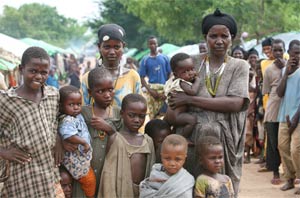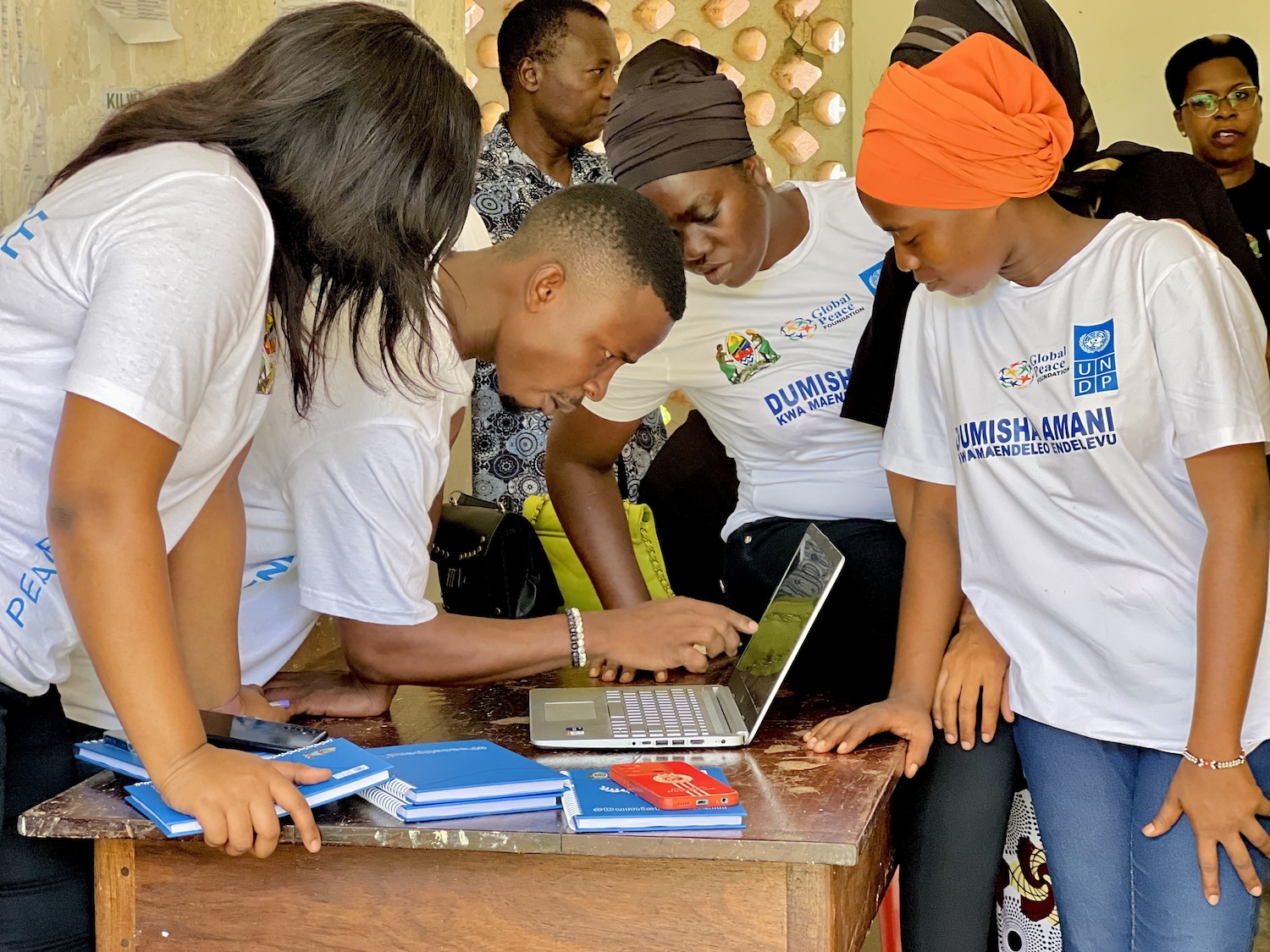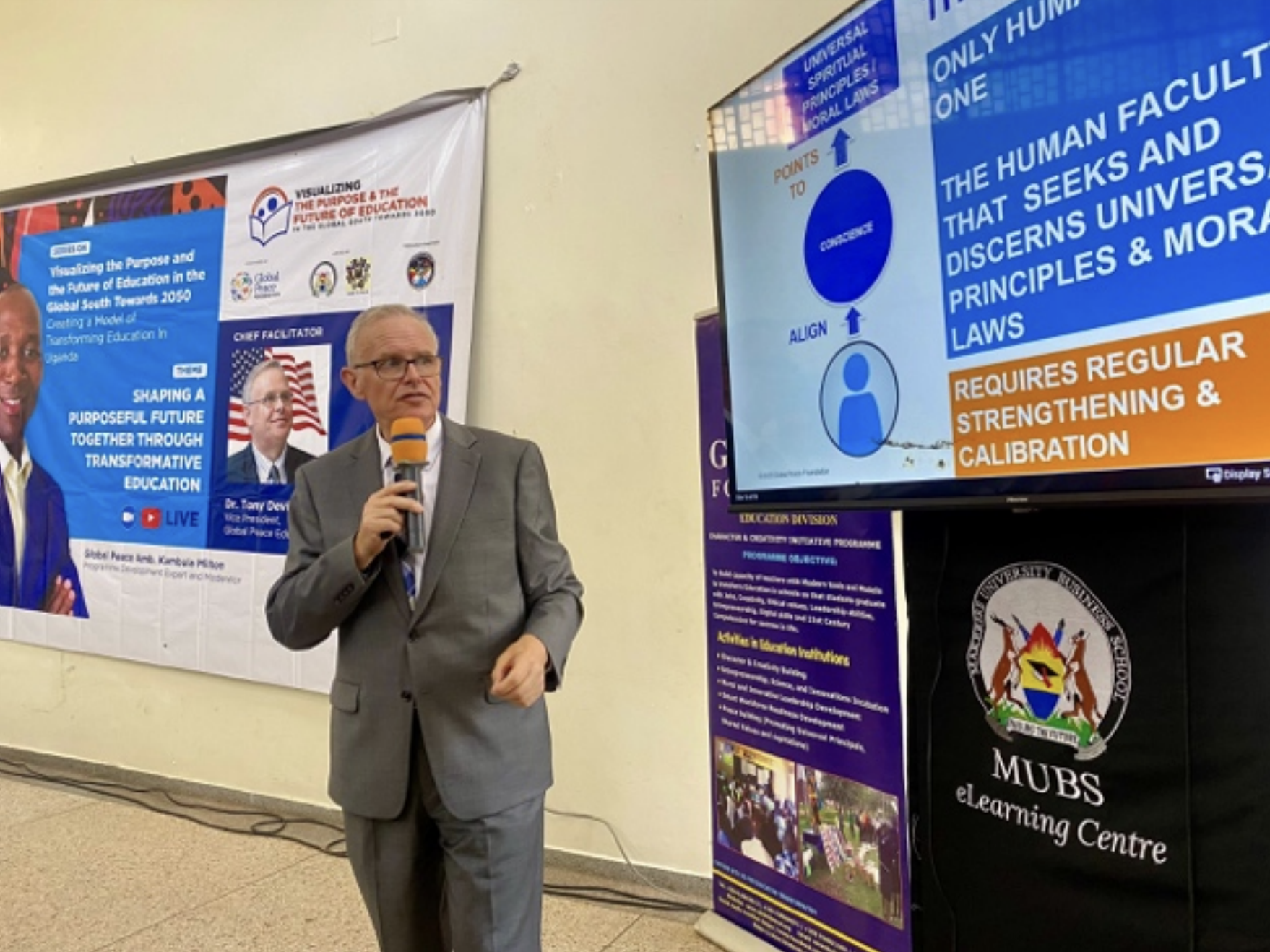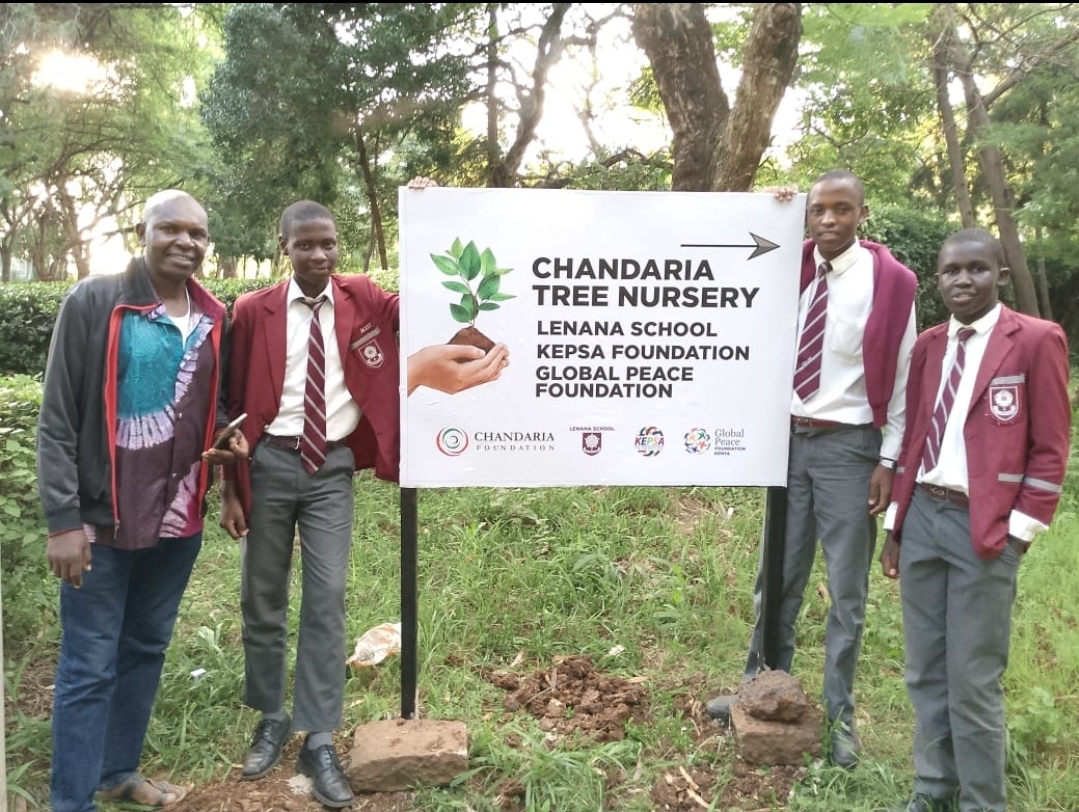The Horn of Africa is facing extreme environmental, humanitarian, and political challenges which require the urgent response of regional and international states, panelists from Kenya and Somalia told a forum at the Global Peace Convention in Nairobi in November 2010. Global Peace Convention is an annual meeting of the Global Peace Foundation, founded by Dr. Hyun Jin Moon.
At the heart of the region’s problems is Somalia, a failed state that for twenty years has been embroiled in civil war, religious conflict, and increasingly desperate competition among its people for scarce resources.
Although an interim government was created in 2004, various regions of the country are effectively without a rule of law. The al Qaeda-affiliated Al Shabaab insurgency has further undermined tribal and family stability and disrupted the country’s fragile economy. Compounding these problems, a severe drought is devastating the region, pushing desperate Somalis into neighboring countries in search of basic necessities.
Ms. Najma Ahmed Abdi of the Somali Youth Leader Forum thanked the Convention organizers for including Somalia and for addressing humanitarian and security issues relating to the Horn of Africa. She said that conflict has persisted in Somalia for so long that it becomes more difficult to determine the real purpose.
“We need protection so that traditional and religious leaders who are known and recognized by Somalis can move the country toward peace.”
“Somalia is now becoming a threat to the region,” Ms. Abdi said. “If we have a peace conference in Somalia, the criteria to attend is ‘how many people have you killed’? If we don’t find effective interventions, in the next few months Somalia will surely be the next Afghanistan.
“We have lost our best people—ministers, educators, the next generation of Somali doctors and engineers. Some young men today have never seen law and order. Young Somalis recruited by Al Shabaab are being offered more of a life than is offered by the government, so they eventually join Al Shabaab because it is a better deal for them.”
Recruitment of soldiers often spills across the borders. The New York Times reported in November 2010 that Al Shabab militants posing as refugees in Kenya were recruiting children at a refugee camp. The report quoted a UN special envoy that the recruitment “has become widespread; children are commodities.”
“If Somalia could receive support from other African countries,” Ms. Abdi said, “ordinary Somalis would reject Al Shabaab. But that has not happened. When Ethiopia invaded Somalia in 2007 [ostensibly in response to the growing lawlessness and threat of Islamist terrorism], not a single African president expressed opposition. A lot of people who don’t support Al Shabaab now did so then because they saw them as the ones who would free them from the Ethiopians.” This historic animosity, she said, was the root cause of the Al Shabaab insurgency.
A Humanitarian Crisis
Since 1991 there have been 14 failed governments in Somalia, and while world attention has often focused on piracy off Somalia’s coast, a better measure of the humanitarian disaster can be found 50 miles across the Kenyan border, in the refugee camp at Dadaab. According to United Nations estimates, the refugee population in this arid town in northeastern Kenya is approaching 300,000, currently the largest refugee complex in the world.
Critical shortages of water, inadequate health services, and lack of school facilities for the estimated 100,000 schoolchildren in the camp have raised international alarms. The annual budget for this camp is U.S. $19 million, about one-fifth of what the Office of the United Nations High Commissioner for Refugees says is the minimum required to meet basic needs for the swelling numbers. The current budget is approximately half the annual operational cost of a single warship patrolling the Somalian coast, prompting Gerry Simpson of Human Rights Watch to observe in the UK’s Independent: “When commercial interests are at stake there’s money. When it’s women and children there is not.”
Regional security issues
Panelist Francis Kimemia, permanent secretary of Kenya’s Ministry of Internal Security, underscored that Somalia presents the most serious challenge to peace and stability in the region. In a statement presented by an aide, Secretary Kimemia outlined the threat posed by international terrorists who are able plan and launch attacks regionally and globally in the absence of a functioning state. The proliferation of small arms, smuggling of contraband, and piracy all contribute to anarchy, he said.
“Piracy threatens security, trade, shipping, tourism in the region, and other economic activities,” Secretary Kimemia emphasized. “As a result, ships require more insurance and other costly security measures. Resources are diverted for security that are needed for education, social services, and development, and costs of commodities are inflated, placing further burden on the most vulnerable people.”
The permanent secretary summarized a number of policies and initiatives Kenya has taken in coordination with the United Nations to facilitate peace in Somalia. He said Kenya has deployed security forces to forestall cross-border attacks and has urged the African Union and other international bodies to intervene in Somali crisis in serious and concerted manner.
Kenya also has improved the screening of refugees and effectiveness of patrols to prevent militants from entering border countries and is seeking funding from donors to upgrade monitoring technology at the border. “Community and religious leaders in the border region have also been sensitizing citizens,” he said, “particularly youth, to avoid association with radical groups.”
Seeking solutions
 “We need to look at the situation from an African point of view and an Islamic point of view,” Ms. Abdi said. “We don’t need international conferences where people arrive with laptops and never really make contact with the culture and people of Somalia. Somalis have never been a threat to their brothers and sisters. We have to start with a reconciliation process that comes from forgiveness, tolerance, and understanding of what others have done.
“We need to look at the situation from an African point of view and an Islamic point of view,” Ms. Abdi said. “We don’t need international conferences where people arrive with laptops and never really make contact with the culture and people of Somalia. Somalis have never been a threat to their brothers and sisters. We have to start with a reconciliation process that comes from forgiveness, tolerance, and understanding of what others have done.
“Any solution to the crisis in Somalia has to be owned by Somalis. For 21 years our destiny has been owned by others. We need protection so that traditional and religious leaders who are known and recognized by Somalis can move the country toward peace. If the Somalis have the power of freedom, we can defeat the enemies that are trying to control this country.”



